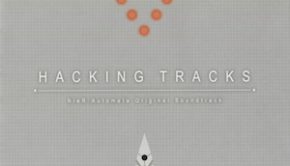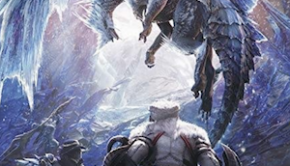Okami Arrangement Collection Vol. 1 -Retro-
 |
Album Title: Okami Arrangement Collection Vol. 1 -Retro- (Okami Henkyokushuu Vol. 1 -Retro-) |
| Record Label: Suleputer |
|
| Catalog No.: CPCA-10375 |
|
| Release Date: Jan 14, 2015 |
|
| Purchase: Buy from CDJapan |
Overview
Published by Capcom and developed by Clover Studios, Okami was a gorgeous action-adventure game originally released for the PS2 in 2006. Though it failed commercially due to having been released on a dying console, it garnered widespread critical acclaim and still remains a treasure in the eyes of many gamers. Reviewers and players alike sang praise for Okami’s distinct art style inspired by traditional Japanese paintings, as well as for its vibrant lifelike world populated by memorable characters and breathtaking scenery. The game would later be ported over to the Wii with motion controls, and finally the PS3 with an HD remake. Following much fan demand, a sequel titled Okamiden was released for the Nintendo DS in 2011. The current future of this series remains uncertain, but Okami is without a doubt one of the most memorable and innovative titles to ever come out of the industry.
Okami’s ethnic soundtrack was similarly met with high acclaim. Notably it used a mixture of high quality synth and traditional Japanese instruments, creating a highly distinct soundscape that was unlike any other game on the market. Its expansive score was handled by five different composers and was released on a deluxe 5-disc album boxed set around the time of the game’s release. This year, Capcom released three brand new Okami arrange albums through their Suleputer label. The first of these, Okami Henkyokushuu Vol. 1 -Retro-, is in a style highly reminiscent of what one would hear on a Famicom or personal computer from the 1980s.
The album, however, is technically not original. Back in 2006, Capcom released an Okami 8-bit parody flash game on their website, looking somewhat akin to classic Dragon Quest with its layout. Players would simply click around the world map interacting with characters, additionally having the option to download the background music. This arranged release is a “remastered” collection of sorts, upping the quality of the synth slightly and having an overall crisper range. Japanese indie artists Hige Driver, Professor Sakamoto, and baker additionally provided four new tracks to round off the selection. I personally was not aware of the parody game until I was handed this album for review, so the listening experiencing for me was completely new. Does it compare to the original soundtrack? Is it a quality arrangement?
Body
Arranged albums of video game music as a whole are tricky to pull off. They have to respect the original source material, while not bringing about unnecessary redundancies that bring no real positive change. The Okami series previously had a somewhat lackluster piano album which I found to be dull and uninteresting. I was admittedly unsure whether or not a retro-inspired album would even be worth my time. After all, one of Okami’s highlights was that it had unique instrumentation that made it stand out from the rest. As a result the idea of hearing a “downgrade” made me quite skeptical. The final result is an interesting collection of chiptune meeting traditional Japanese music which had me listening intently from start to finish, though not necessarily with the utmost enjoyment.
The opening track “Okami Retro Version (Old Man Orange Appears ~ Slicing the Huge Rock Success)” is a brief medley of themes from composers Masami Ueda and Hiroshi Yamaguchi, giving us a taste of what to expect. The first 30 seconds establish some airy, light-hearted synth; almost as if telling the listening to not take the album as a whole too seriously. This immediately transitions into a short battle theme with “item-get” sound effects, synthesized wolf calls (our hero Amaterasu!), along with some percussion and higher-pitched notes. The more ambient Celestial Brush theme comes in next with sound effects, followed by an upbeat snippet of Amaterasu going through the Kamiki Village while collecting items. The rest of the track throughout its 3:26 runtime follows a similar format of sampling melodies and pairing them with sound effects. As a whole, it’s a rather odd and somewhat disposable track that really only serves the purpose of “previewing” the rest of the album.
Hiroshi Yamaguchi’s theme for the absent-minded old man Mr. Orange is the album’s first real track. The melody is definitely reminiscent of a Japanese folk song, but its minute-long runtime doesn’t allow for much development. Yamaguchi’s other contributions such as “Celestial Brush” and “Dragon Sketch Success” are brief cues featured throughout the game, but they don’t really mean much when listened to stand-alone, with or without the retro synth. Thankfully, his other two tracks are far more impressive and his own remixing leads to some great material. “Ryoshima Plains” is epic and rising, featuring progressive cinematic composition aided by taiko drum synths. “Northern Country Kamui” begins with more reserve, but then rises into an upbeat theme. Its rendition here makes it very akin to something out of Mega Man, while still retaining its original Eastern fingerprints.
Erina Niwa only has three compositions included here, and they’re more of a mixed bag. “Giving Susano-o a Ride” is another one of those tracks that really only works well in-game with its somewhat forgettable composition, but I did find “Susano-o’s Training” somewhat better. Though simple, I enjoyed the heroic theme and militaristic percussion. The other track is “Ushiwaka’s Theme” which is a character piece used for a mysterious flute player that the protagonist meets at a certain point in the game. Haunting and distant, it features some interesting remixing and scales, but does fall into some repetition at times.
The real bulk of the album is the contributions from Masami Ueda, which are undoubtedly the most developed and strongest. “Spirit Extermination” appears early on, and is a frantically paced battle theme. The original had some breathtaking Japanese instrumentation and percussion beats, so I was curious to see how it would fare as an 8-bit rendition. The results are something that’s neither better nor worse; only different. Ueda’s use of different synth channels is splendidly done, and it would even make some Famicom composers jealous. The following track, “Battle Evaluation,” is simply a concluding jingle.
Not everything included though is as good. “Susano-o Skipping Training” and “Impatient Susano-o” are both repetitive and forgettable, while “Slicing the Huge Rock Success” is another throwaway gameplay cue. Ueda, however, excels at area themes. “Kamiki Village” is charming and arid, with a melody that feels distinctly Eastern and pleasant. “Shinshu Plains” has a ton of different composition levels, being complex and multilayered. Having a soundscape that’s rich and heroic, it’s definitely one of the game’s best pieces. The 8-bit conversion is exceptionally done too, again being an example of great mixing of limited sound channels. The last piece by Ueda here is “Rising Sun,” another track that was one of my favorites. Naturally, I had high expectations for this remix, and it thankfully did not disappoint. Having the longest runtime, it benefits from greater musical development and progression. Even on older synth, Ueda uses some excellent techniques with melodies that are vast and expanding. Every element works beautifully together, and it’s one of his strongest along with “Shinshu Plains.”
Of course, things aren’t done just yet. This release includes tracks from three indie artists, using slightly different synth from each other. Hige Driver’s “Red Helmet Extermination” is an odd combination of both retro and modern techno. One might initially view it as jarring, but in actuality it’s quite an impressive listening experience. Peppered throughout with some Japanese male chanting and percussion samplings, it had me utterly captivated. With “Okikumi the Hero,” Professor Sakamoto fuses a heroic flute-like theme that incorporates some jazzy elements alongside some truly “gamey” synths. “The Emperor of Eternal Darkness” by baker begins with some fuzzy ambience, then transitions into a progressing industrial beat. The main melody is dark and ominous, but sort of carries a less serious atmosphere when taken as a whole. Though not as memorable as the other remixes, I enjoyed the sound design and interpretation. Lastly, Professor Sakamoto comes back and ends with another remix of “Rising Sun.” This version differs from Ueda’s, having more melancholic and laid-back synth. The beats and rhythm are more pronounced, making it an enjoyable rendition of an already great piece.
Summary
To truly enjoy this album, one has to already be a fan of Okami and a listener of chiptune music. If one especially isn’t a fan of the latter, then this will definitely be a chore. There’s a lot to like considering my own tastes, but that won’t necessarily hold true for everyone. Masami Ueda contributes the best tracks, while the ones by the three indie artists are great highlights as well. The rest is more of a mixed bag, some tracks being forgettable, others faring better. In the end, this is simply another standard arrange album from Capcom, one that neither stands out nor is particularly terrible. I personally think that the asking price is a bit high, so it comes as a tough one to really recommend. Still, diehard fans of the game and lovers of retro chiptune may find it to be worthwhile.
Do you agree with the review and score? Let us know in the comments below!
3
Posted on March 17, 2015 by Oliver Jia. Last modified on March 18, 2015.














